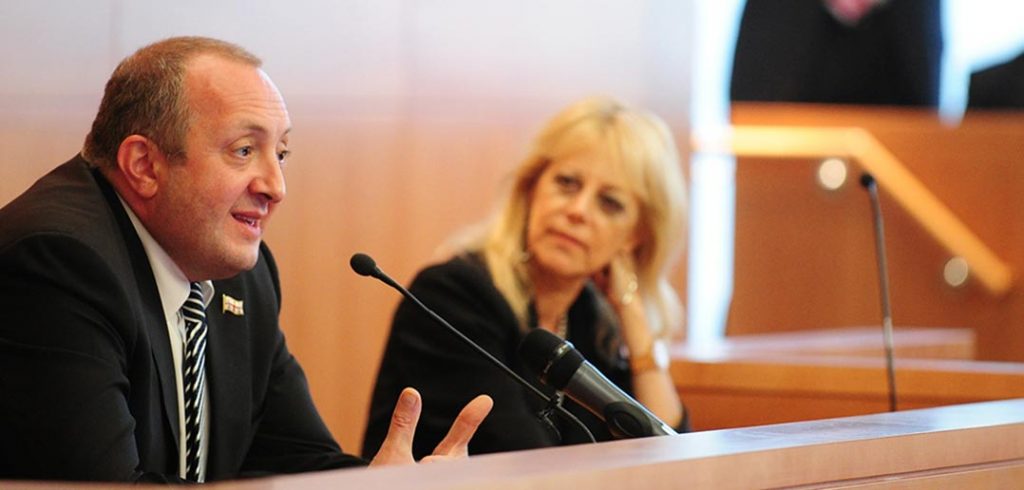He spoke forcefully about the importance of the rule of law, both within nations and internationally, saying it has been obscured in other nations’ reactions to Russian incursions. “No matter what is the psychological explanation of the acts of occupation of its neighbors, we have to condemn it,” Margvelashvili said at the Sept. 28 event.
His appearance came as world leaders gathered across town for the 70th United Nations General Assembly, where Russia also faced criticism from the president of Ukraine over its annexation of Crimea last year. That action, along with Russia’s occupation of Georgian territories after a 2008 war between the two nations, is the kind of violation that is “equally dangerous for the violated, for the violator, as well as for other countries,” Margvelashvili said.
It was muted, “thoughtful” reactions to Russia’s 2008 actions that led last year to its annexation of Crimea, a peninsula on the Black Sea coast of Ukraine, he said.
“I’m talking about the other nations trying to understand, trying to describe, trying to explain, what Russia did, and thus going beyond the whole concept of condemning Russia to the concept of explaining Russia,” he said. “[The] law is clear: a neighboring state cannot violate the borders of another state no matter how strong or effective or efficient its army is. But there are still nations around the world that are trying to explain, and sometimes in a very sophisticated psychological analysis, why Russia did this.”
He noted that the Russian Federation’s actions in Ukraine came 20 years after Ukraine agreed to nuclear disarmament.
“What is the message after this that we are trying to send to other countries when we are asking them to disarm from their nuclear weapons?” he said. “Wouldn’t they ask the question, ‘Well, Ukraine did this and look at what they have got. Their territories have been occupied.’ So those kind of violations, they don’t only affect Ukraine, they didn’t only affect Georgia, they affected everyone else in the world.”
He took questions from moderator Karen Greenberg, director of Fordham Law’s Center on National Security, and from the audience. He spoke of the importance of the Eurasian “Silk Road” free trade zone that Georgia is trying to establish in partnership with China, and also about Georgia’s aspirations for membership in NATO. “We deserve to have NATO as an umbrella for our peaceful development,” given Georgia’s military sacrifices in the Balkans, the Persian Gulf and Afghanistan, he said.
He also told the law students in the audience about the value of the profession they seek to join.
“What I see, not only in the international relationships but in internal politics, in any of the democracies—be it the U.S., be it Georgia, be it other countries—is that the ability of a country to grow and become stronger is in [the]decision of people, political leaders and actors in society, to be bound to the rules,” he said. “That’s an effort that makes your jobs important.”

